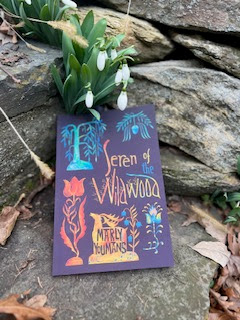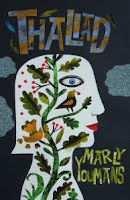Here's the announcement:
ESU Formal Verse Contest 2024 - Winners
The English-Speaking Union (Victoria Branch) is pleased to announce the winners for the inaugural ESU Formal Verse Contest, for a metrical, rhymed or unrhymed poem of 70 lines or less.
We had a large number of entries from poets in Australia, the USA, Canada and Germany and thank everyone for participating. The final winners were selected by Prime Minister’s Award-winning poet Stephen Edgar. The President’s Choice Award was chosen by ESU Victoria Branch President Robert Furlan. The winners were announced at an Awards Ceremony in Melbourne, Victoria, Australia on 14 December 2024.
Congratulations to our winners!
Winning Poems:
First Prize ($5,000) “Continuing City” - Jesse Keith Butler (Canada). Coming soon: a video of Jesse reading his winning poem.
What struck and impressed me about this poem was the way the form to some extent enacts the content. The formal regularity of the iambic pentameter and the strict rhyme scheme—both handled with skill—are shaken and pulled apart by enjambment and sentences which lie at odds with that rigid grid, mirroring the disruptions to the city’s stable forms by demolition and construction. Repetition of key words creates a sense of urgency, or even panic, and, literally rising above the damaged cityscape, the poem builds to a dystopian vision of the future. --Stephen Edgar
Runner-up ($1,000) “Learning Greek” - Kevin Hart (Australia)
This trancelike--indeed, entrancing--poem in iambic pentameter, though unrhymed, has quite different strategies from the winning poem. Here, the marriage between meter and grammar establishes a mood of quiet ecstasy or yearning. Indeed, the Greek word in the poem, Έπέκτασις, literally a straining-towards, tempts one to read ekstasis. The poem brought to mind Wallace Stevens's adage that the world about us would be desolate except for the world within us. The world within represented by the two languages the poet studies, Greek and French, which inform and transform the world without, or the speaker--in the end virtually recreating it. --Stephen Edgar (transcribed--I hope accurately--from the video)
Runner-up ($1,000) “Ælfstan the Illuminator Begins a Work” - Marly Youmans (USA)
I admired the ambitious scope and richly imagined details of this poem. It made me think fleetingly, though the two poems are quite different in mood and content, of Robert Browning’s ‘A Grammarian’s Funeral’, in its reimagining of a mediaeval world and ethos. The language and imagery are impressively charged and evocative, and the poem embodies the very creative process it describes, whereby the naked page is filled with ‘the rich illuminations of the year’. --Stephen Edgar
President's Choice Award ($1,000) “Ælfstan the Illuminator Begins a Work” - Marly Youmans (USA)
An impressive depiction of creativity - from the void of a blank page to the emergence of ideas and images embedded in life's experiences. The sparrow's flight imagery is a clever use of Bede's parable - the flashing wings of insight and inspiration leading to a masterful illuminated expression of meaning. The poem's use of cognitive images which extend beyond the standard earth-bound images of nature are sublime: "A cosmos gleaming with possibility"; "the Apocalypse of birth" ; "a cloak of endlessness". A refined and thought-provoking poem. --Robert Furlan
In other news, there are some new reviews of Seren of the Wildwood, and I'll soon post excerpts on the Seren-page.
 |
| Illumination by Clive Hicks-Jenkins for Seren of the Wildwood from Wiseblood Books |
.jpg)





























